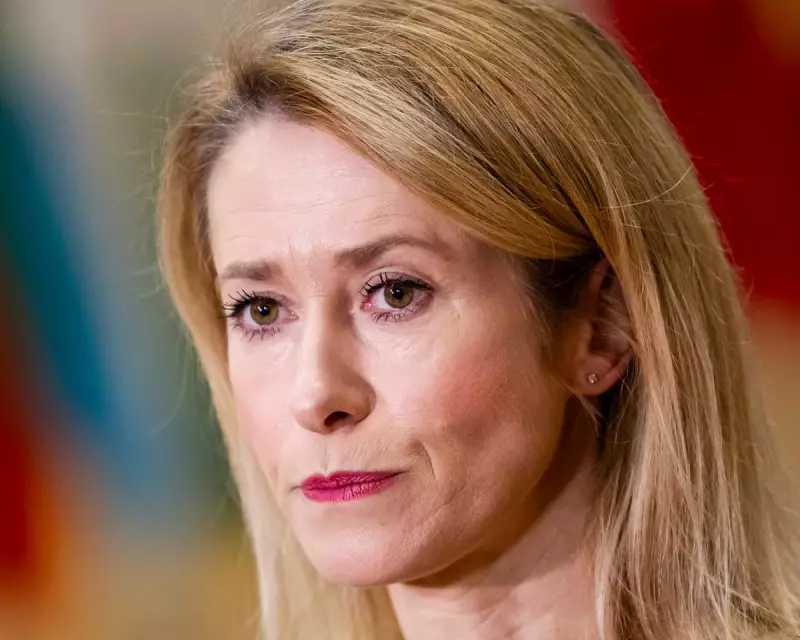
European Union foreign ministers have gathered in Brussels for an urgent meeting amid growing controversy over a secretive draft peace plan for Ukraine that would effectively require Kyiv's capitulation to Russia.
Controversial Peace Proposal Sparks EU Division
The proposed settlement, reportedly developed by Donald Trump's envoy Steve Witkoff and Kremlin adviser Kirill Dmitriev, would impose draconian measures giving Russia unprecedented control over Ukraine's military and political sovereignty. The plan is viewed by many as amounting to surrender for Ukraine and has created significant tension within European diplomatic circles.
Arriving at the crucial meeting, EU foreign policy chief Kaja Kallas emphasised the European position, stating: "What we as Europeans have always supported is a long, lasting and just peace, and we welcome any efforts to achieve that." However, she crucially added that any workable plan must have Ukrainian and European backing.
European Leaders Voice Strong Reservations
Kallas delivered a stark assessment of Russian aggression, noting that 93% of Russian military targets have been civilian infrastructure, including schools, hospitals and apartment buildings. She questioned Moscow's commitment to peace, pointing out that Russia could have agreed to an unconditional ceasefire long ago but instead continues bombing civilian areas.
The Estonian official also confirmed that, to her knowledge, no European leaders participated in developing the controversial proposal, raising questions about its legitimacy and prospects for acceptance.
French foreign minister Jean-Noël Barrot echoed these concerns, insisting that peace in Ukraine cannot mean "capitulation" for Kyiv. He proposed that discussions should begin with a ceasefire along the contact line to enable orderly negotiations about territories and security arrangements.
Mixed Responses and Mounting Civilian Casualties
Spain's José Manuel Albares reinforced the position that any peace plans must involve both Kyiv and the European Union, underscoring the importance of Ukrainian sovereignty in any settlement.
However, not all voices expressed uniform support for Ukraine's position. Hungary's Péter Szijjártó took a contrasting stance, calling for the EU to immediately stop payments to what he described as "a war mafia" in Ukraine. He warned that it's an illusion to believe time favours Ukraine in the conflict.
The diplomatic discussions occur against a backdrop of continuing violence, with Ukraine mourning 26 people killed in a Russian strike on Ternopil and 22 others still missing following the attack. The timing highlights the urgent need for a resolution that addresses both immediate humanitarian concerns and long-term security arrangements.





